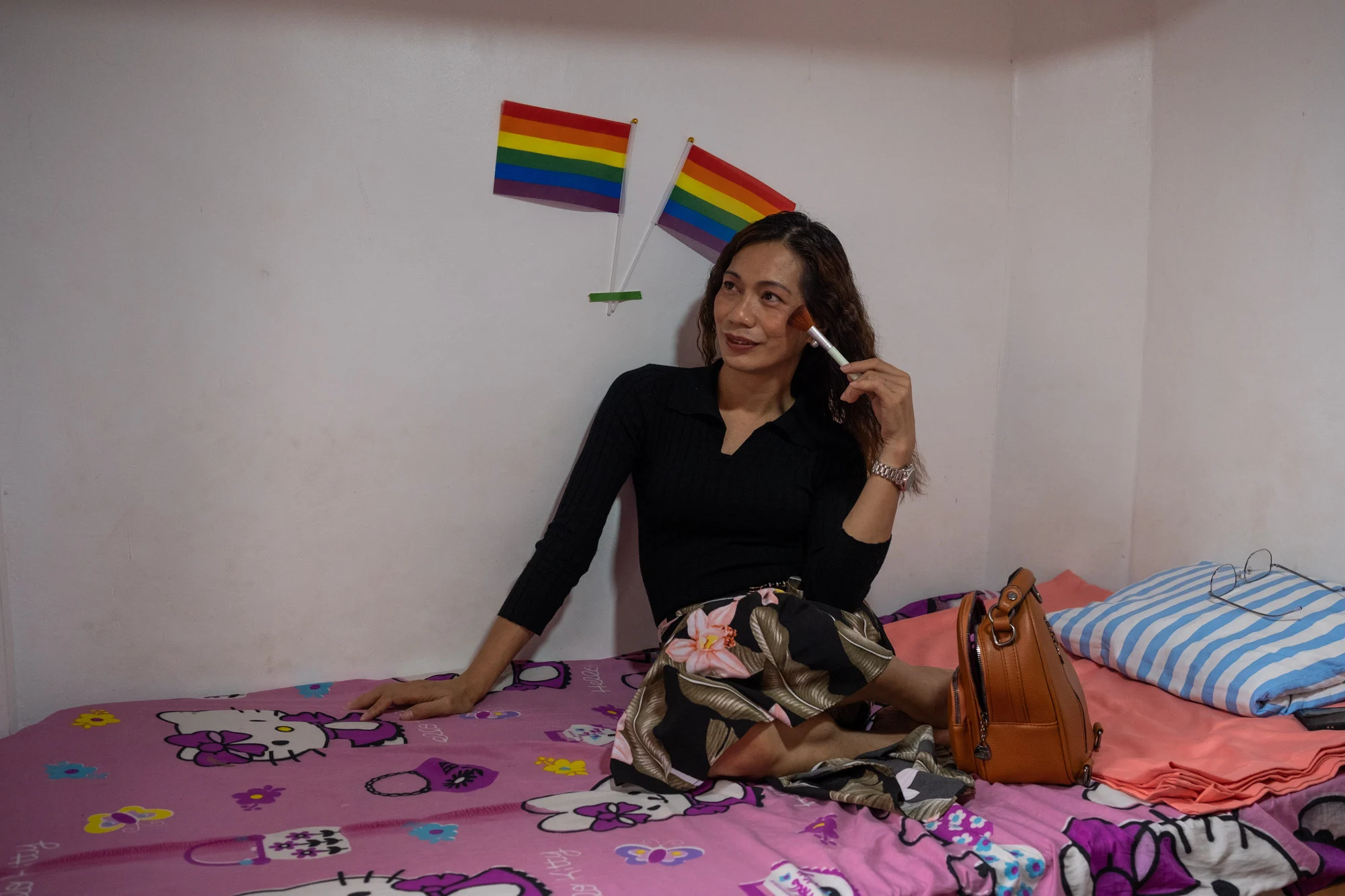By Geela Garcia
Copyright scmp

In a country where LGBTQ rights remain politically contentious and progress is often stalled by deep-rooted conservatism, a small clinic in Quezon City has become a quiet symbol of change.
Tucked inside a car park north of Manila, Klinika Eastwood is now offering free gender-affirming health consultations – a direct result of a landmark city ordinance that positions Quezon City as the first local government in the Philippines to guarantee inclusive medical services for transgender people.
For Queen Sweetie Acidre, a 38-year-old trans woman, it marks a watershed moment.
She told This Week in Asia that she had come to the clinic for a routine screening for sexually transmitted infections, but for the first time, she would also receive care tailored to her gender identity – a service still unavailable in most parts of the country.
“Transgender individuals are very vulnerable, but people don’t know that because we pretend to be strong and tough,” she said. “This initiative is a good start because, through this, we can now seek advice and help with our health concerns.”
Acidre began taking feminising hormone pills in her mid-thirties, but without medical guidance. The side effects – mood swings, sleepiness, irritability – strained her relationship with her partner. Still, she pressed on.
“My partner at the time didn’t like them because it made me have mood swings, but I took them because to me, it’s the fulfilment of being a woman,” she said.
She considers herself fortunate because she had already been aware of the possible side effects after receiving advice from others in the trans community. But for many, such information was difficult to access.
Ava Rossing, now 32, started taking hormones when she was just 14. She wasn’t aware of the risks and would often vomit from nausea. Today, she has undergone gender-affirming surgery, including breast augmentation, and works as a peer educator at Klinika Eastwood.
“I juggle several part-time jobs, such as make-up artist or hosting, to afford feminising hormones,” she said. “Being transgender is expensive, and over 70 per cent of my total income goes to products that affirm my gender.”
Rossing said the Quezon City ordinance had offered her more than medical services – it had given her a sense of legal protection. With her gender identity formally recognised by the city, she can now report incidents of harassment or discrimination with confidence.
The ordinance, passed in July, is part of a broader push by the local government to expand rights and services for gender-diverse residents. The city also introduced the “Right to Care” card in 2023, which allows queer couples to make medical decisions for one another in emergencies – a right typically reserved for legal spouses or immediate family.
The measure’s passage reflects Quezon City’s history as a pioneer in gender equality legislation. It previously passed a Gender Fair Ordinance in 2014, and Mayor Joy Belmonte has since built a reputation as a staunch LGBTQ advocate. Activist networks and local residents had also been campaigning for more inclusive health services, which helped drive political momentum for the ordinance.
Quezon City’s protections stand in stark contrast to the national picture.
The Philippines has been attempting to pass a Sexual Orientation, Gender Identity, and Gender Expression Equality Bill since 2000, but every iteration has failed due to opposition from religious and conservative lawmakers.
The latest version, currently stalled in the 19th Congress, seeks to outlaw discrimination in workplaces, schools and healthcare institutions, and introduce fines and imprisonment for violators.
In the meantime, access to gender-affirming care remains patchy and often unsafe.
Most transgender Filipinos continue to self-medicate, purchasing hormone pills online or over the counter. Many use social media platforms like TikTok and Facebook to crowdsource information – a risky substitute for medical advice that leaves them vulnerable to misinformation and counterfeit products.
Doctors Francis Elmer See and Mike Panaligan, who run Klinika Eastwood, are among the few health professionals in the Philippines with formal training in Gender-Affirming Hormone Therapy. Since completing certification in 2024, they have been helping patients understand the physiological impacts of hormone use and offering safer alternatives.
“We can now give input on taking gender-affirming hormones, tailored to our patients’ goals,” See said. “When we do their laboratory tests, we can check how the pills affect the kidneys, liver and electrolytes, and we can recommend safer options.”
Since the expanded services were introduced in June, the clinic’s patient load has steadily grown – from just one or two trans women a month to as many as eight. Sometimes, they arrive together in groups.
Although the ordinance applies only within Quezon City, the clinic welcomes patients from elsewhere. Among them is 21-year-old Kristina Ferrer, who travelled more than two hours from her hometown to seek advice on gender-affirming hormone treatment.
The demand underscores the unmet need for gender-affirming care across the country. Yet without a national framework, the doctors say their hands remain tied.
Panaligan noted that most trans women still source their hormones informally, and all the clinic can currently do is monitor for complications.
While Quezon City’s ordinance is welcomed by many, not everyone supports such initiatives. Conservative podcaster Jay Aruga has criticised the measure as dangerous, particularly at a time when some Western countries are rethinking their approaches to diversity and inclusion.
“What do we need it for? What kind of healthcare do LGBT people not receive?” he told This Week in Asia. “There needs to be more research done on the health effects of transitioning, and officials should be asking if these are the best ways to care for people with gender dysphoria.”
Aruga cited studies from the United Kingdom, where puberty blockers were banned for children under 18, and argued that the consumption of hormone pills risked becoming an endless cycle that benefited pharmaceutical companies.
Acidre said she could not fault others for holding different views on transitioning and respected those opinions. But she stressed that transgender people were not seeking to dominate society – only to live without prejudice.
“I wasn’t able to do this when I was younger because I was so scared of the opinion of other people, but transitioning made me stronger about that,” she said.
A member of the Society of Trans Women Philippines, Acidre said what their community needed went beyond acceptance. They wanted compassion and recognition as people able to contribute to society, with equal access to work, healthcare and social inclusion.
“I’ve experienced discrimination in the workplace, which caused me to have anxiety,” she said. “Trans people fight for equality because, just like other human beings, we also eat food, pay rent and bills, and deserve to live.”



